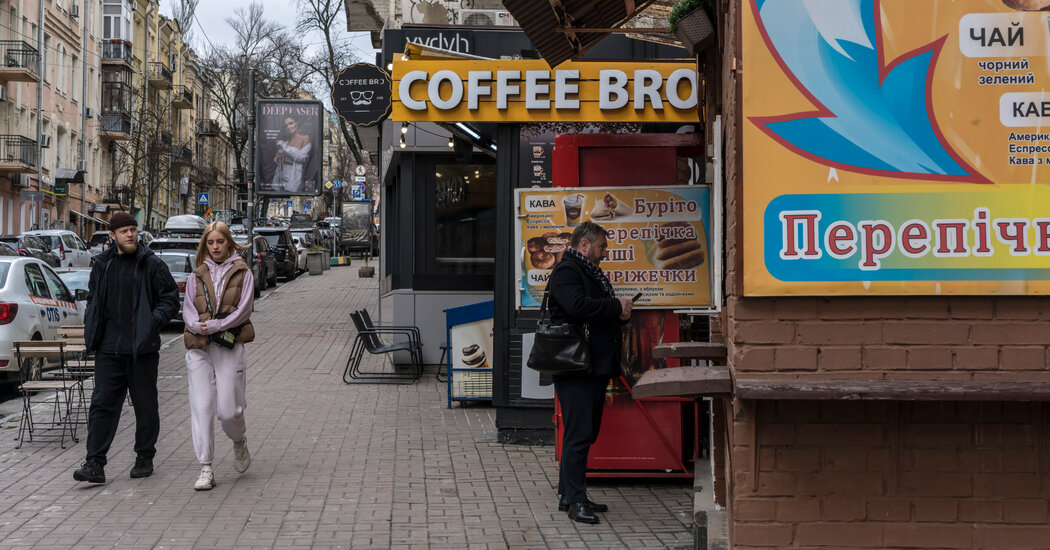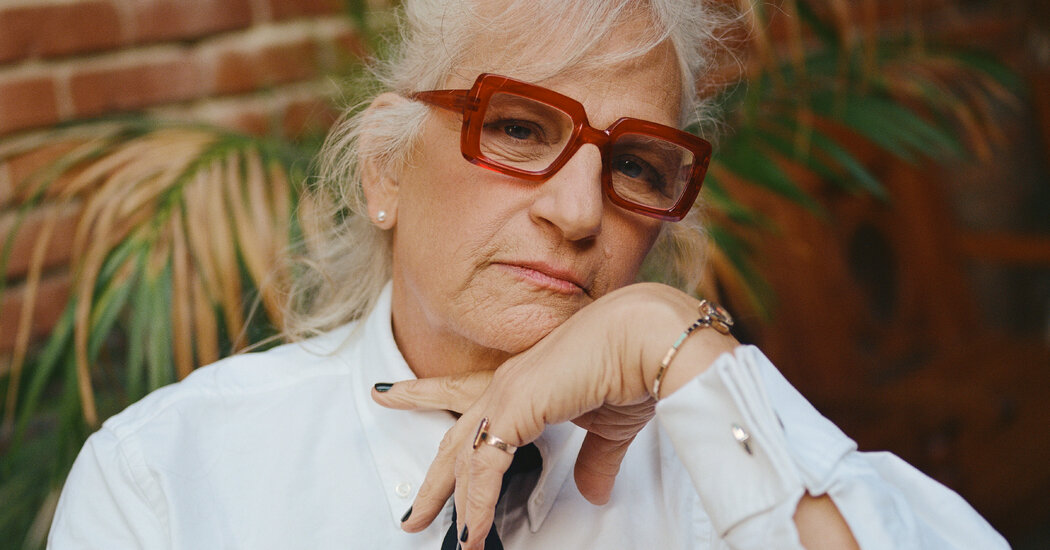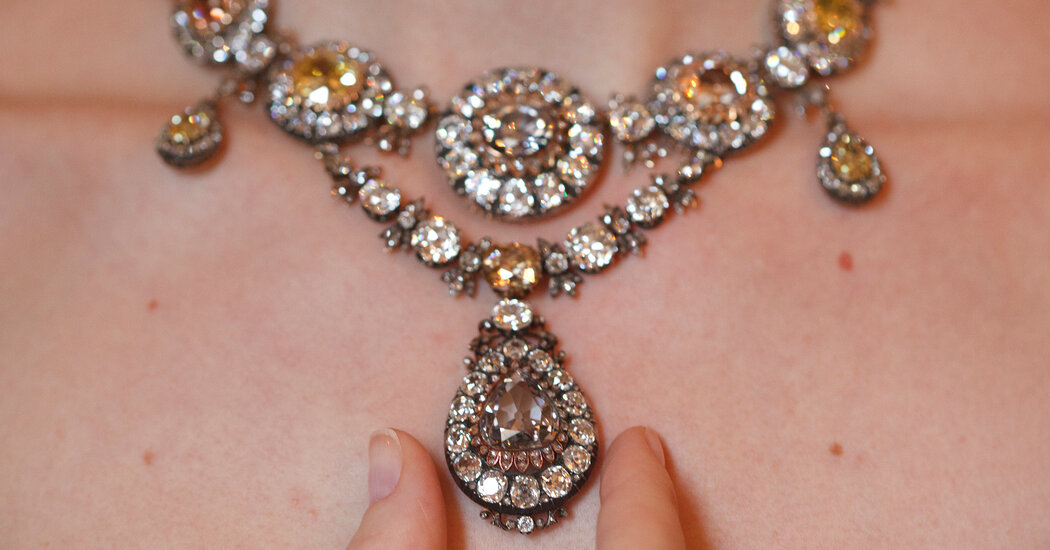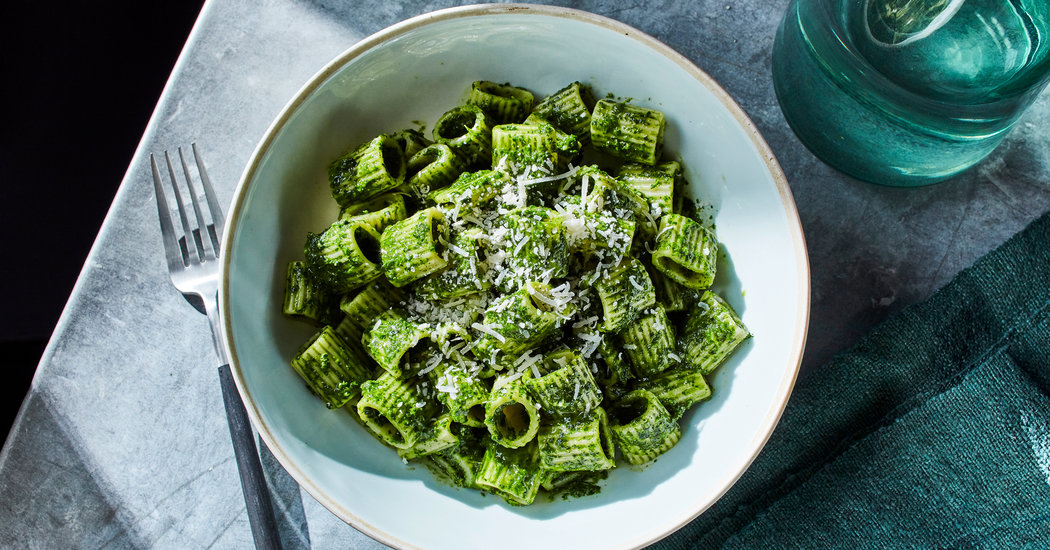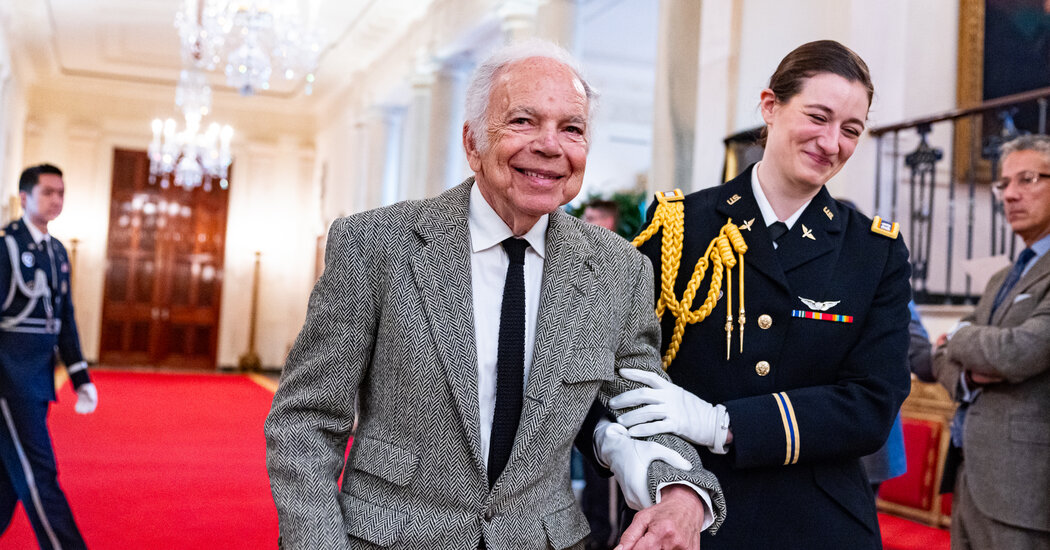When Russian tanks first rolled into Ukraine more than two years ago, Artem Vradii was sure his business was bound to suffer.
“Who would think about coffee in this situation?” thought Mr. Vradii, the co-founder of a Kyiv coffee roastery named Mad Heads. “Nobody would care.”
But over the next few days after the invasion’s start, he started receiving messages from Ukrainian soldiers. One asked for bags of ground coffee because he could not stand the energy drinks supplied by the army. Another simply requested beans: He had brought his own grinder to the front.
“I was really shocked,” Mr. Vradii said in a recent interview at his roastery, a 40-foot-high brick building buzzing with the sound of grinding coffee and filled with the smell of freshly ground beans. “Despite the war, people were still thinking about coffee. They could leave their homes, their habits. But they could not live without coffee.”
The soldiers’ requests are just one facet of a little-known cornerstone of the Ukrainian lifestyle today: its vibrant coffee culture.
Over the past decade, coffee shops have proliferated across Ukraine, in cities large and small. That is particularly true in Kyiv, the capital, where small coffee kiosks staffed by trained baristas serving tasty mochas for less than $2 have become a fixture of the streetscape.
Walk into one of Kyiv’s hidden courtyards and there’s a good chance you’ll find a coffee shop with baristas busy perfecting their latte art behind the counter.
Coffee culture has flourished globally — even in tea-obsessed Britain — but in Ukraine over the past two years, it has taken on a special meaning as a sign of resilience and defiance.
“Everything will be fine,” said Maria Yevstafieva, an 18-year-old barista who was preparing a latte on a recent morning in a Kyiv coffee shop that had just been damaged by a missile attack. The shop’s glass window had been shattered by the blast and had fallen onto the counter, but Ms. Yevstafieva was unfazed.
“How can they break us?” she is heard saying in a video, referring to the Russian army. “We have a strike, we make coffee.”
Before the war, Ukraine was one of the fastest-growing coffee markets in Europe, according to the Allegra World Coffee Portal, a research group. In Kyiv, the number of coffee shops continued to grow even after the Russian invasion, reaching some 2,500 shops today, according to Pro-Consulting, a Ukrainian marketing research group.
The Girkiy chain, for example, is hard to miss in the capital, with more than 70 coffee shops. Its mint-colored kiosks stand at the foot of centuries-old Orthodox churches and around Kyiv’s main squares.
On a recent afternoon, Yelyzaveta Holota, an 18-year-old barista, was busy in her kiosk preparing orders. She had been on the job for only four months, but she already had a confident touch: She weighed the ground coffee, tamped it into a portafilter and, after pouring an espresso into a cup, gave it a little swirl to bring out the flavors.
The technique has to be perfect, she said, because the competition is fierce. Six other coffee shops line the street where she works in central Kyiv, including a second one from Girkiy, which means “bitter” in Ukrainian.
Founded in 2015, the chain used to serve low-quality coffee, focusing instead on speed. But in 2020, Oleh Astashev, the founder, visited the Barn in Berlin, a craft coffee institution that roasts its own coffee.
The visit impressed and inspired him. Back in Kyiv, he built his own roastery, bought top-of-the-range Italian coffee machines and started training his baristas.
“We changed everything — the name, the service, the products, the qualify of the coffee beans, the quality of the water,” he said. “Anybody should be able to drink high-quality coffee.”
The chain’s former name was “Gorkiy,” or bitter in Russian.
Mr. Astashev’s story reflects how the country’s coffee boom is linked to its broader rapprochement with Europe.
After Ukraine’s revolution on Maidan Square in 2014, which toppled a pro-Russian president, the country strengthened its ties to Europe, including through visa-free entry for its citizens. Many Ukrainians traveled west, discovering a coffee culture that had not yet penetrated their borders. Soon enough, they were bringing it back home.
“We wanted our coffee shops in Kyiv to be like in Europe,” said Maryna Dobzovolska, 39, who co-founded the Right Coffee Bar with her husband, Oleksii Gurtov, in 2017.
Ask Ukraine’s coffee entrepreneurs about Vienna’s famous coffeehouses or Italy’s signature espresso and they’ll dismiss them as a “conservative” and “old-fashioned” view of coffee culture.
Their model was cities like Berlin and Stockholm, where a so-called third wave of coffee shops have mushroomed in the past two decades, emphasizing high-quality beans and innovative recipes.
Most recently, Ms. Dobzovolska and Mr. Gurtov have been experimenting with anaerobic coffee, a processing method that involves fermenting coffee in sealed tanks without oxygen, giving the beverage fruity flavors.
“Try it. You’ll love it,” Mr. Gurtov, 49, said as he poured the steaming, purple drink.
Always willing to push the boundaries, Ukrainian baristas have also popularized the “Capuorange” — a double shot of espresso mixed with fresh orange juice — now on sale everywhere in Kyiv.
Several foreigners said they were amazed by the quality of the coffee in a country that, since the Soviet era, had consumed mostly instant coffee.
“This is the best coffee in the world,” said Michael McLaughlin, a 51-year-old American who does volunteer work in Ukraine, as he ordered an Americano on Maidan Square on a recent afternoon.
Some say it’s simply a return to Ukraine’s roots.
Legend has it that the man who opened the first cafe in Vienna in the late 17th century was Jerzy Kulczycki, a soldier born in modern-day Ukraine. He is honored with a life-size statue in Lviv that praises him as the war hero “who taught Europe to drink coffee.”
Volodymyr Efremov, a coffee roaster at Idealist, a major Ukrainian coffee brand, said his goal was now to “popularize” specialty coffee all around the country.
In today’s Ukraine, there is perhaps no better way to achieve that goal than with the army. Every month, Idealist and other coffee producers give the military tens of thousands of drip coffee bags — single-serve, pour-over sachets filled with ground coffee. These are some of the finest products on the Ukrainian coffee market.
On social networks, soldiers have posted videos of themselves pouring hot water into drip coffee bags placed on iron cups before savoring the steaming drink in a log trench.
Standing near an artillery position last year, a junior Ukrainian sergeant, Maksim — who did not give his family name as per military rules — was boiling water in a small white kettle, a bag of Mad Heads ground coffee at his side. His unit had just fired an Australian-manufactured howitzer at Russian targets on the southern front, and he was in the mood for a good cup of coffee.
For five straight minutes he discussed the degree of water mineralization needed to achieve the perfect brew, the quality of the single-origin beans that make it “taste like honey-alcohol-banana coffee” and how the drink should be sipped to “perceive more flavors.”
Maksim, whose call sign is Stayer, said his fellow soldiers had found the Mad Heads coffee “delicious and asked where I got it.”
“I said, ‘Guys, it’s the 21st century. Let’s eat properly, even if we’re in the military.’”
Michael Schwirtz contributed reporting.



